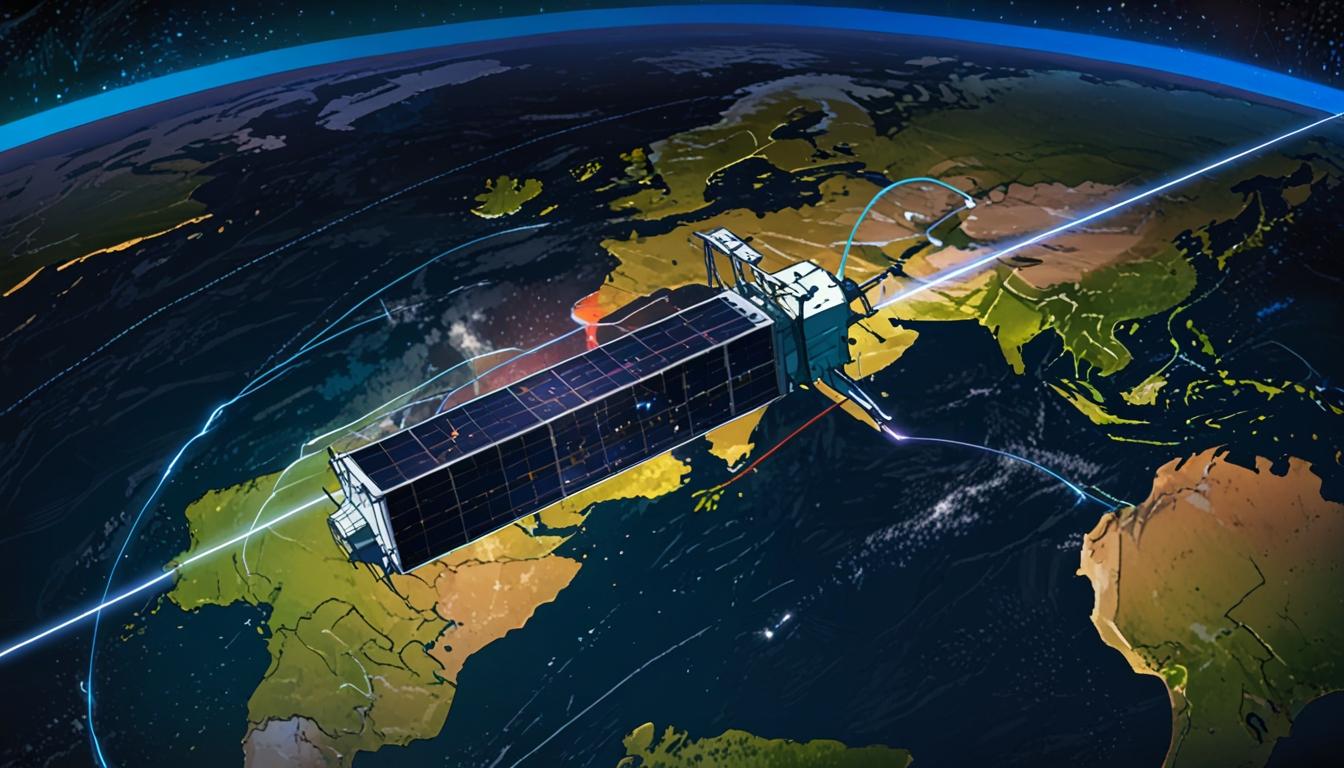Elon Musk’s Starlink satellite service saw record demand during Spain’s widespread power blackout, revealing critical weaknesses in Iberian telecoms infrastructure and sparking urgent calls for enhanced network resilience.
Elon Musk’s Starlink satellite communications service saw a significant upsurge in usage in Spain and Portugal on Monday, following a considerable electricity blackout that exposed inherent vulnerabilities in the telecoms networks across the Iberian peninsula. According to data analysed by the Financial Times, the use of Starlink surged by 35 per cent above average amid widespread disruptions to mobile networks, with a staggering 60 per cent increase noted in Spain on the following day.
The data, provided by the internet access analyst Ookla, indicated that usage reached “record” levels, with “thousands” of users relying on the service, as described by Ookla’s representative, Luke Kehoe. However, while the service remained operational during the blackout, the quality of Starlink coverage diminished as the number of users increased. Kehoe acknowledged that some ground stations in mainland Spain experienced loss of service, although connectivity to stations in other countries, such as Italy, remained viable.
On the infrastructural side, Spain’s grid operator, Red Eléctrica, stated that the precise cause of the blackout is still uncertain. Some experts suggest that the outage may be linked to the electricity grid’s inability to manage an unusually high influx of solar energy. This blackout resulted in severe impacts on traditional mobile coverage, prompting discussions surrounding the need for enhanced resilience in Spain’s mobile network systems.
Ookla’s analysis reported that network consistency—a measure of service reliability—dropped to as low as half of its normal rate on Monday afternoon. With many mobile antennas across Spain inoperative due to the power outage, backup generators at mobile sites became crucial. Vodafone España indicated that their backup generators activated at 70 per cent of their locations during the outage. Nonetheless, as late as 11 pm on the same day, several regions, including Galicia, Castilla La Mancha, and Murcia, reported mobile traffic levels as low as 20 per cent.
Telefónica, another prominent telecommunications provider, stated that it had prioritised critical infrastructures, including emergency services and hospitals, during the power outage. The company claimed to have restored 95 per cent of its mobile network functionality within slightly over 24 hours, achieving “full normality” by Thursday.
Kehoe pointed out that the situation observed in Spain and Portugal is not isolated, noting a general absence of substantial backup battery systems in mobile site grids across various regions. For instance, a recent report by Ofcom in the UK highlighted that while approximately two-thirds of the country could make emergency calls for up to an hour during short power outages, fewer than five per cent of mobile sites were equipped with backup facilities lasting at least six hours. Upgrading these networks to ensure consistent access for emergency services would require significant investment, estimated at around £1 billion.
The telecoms industry in Spain and Portugal operates under “very tight margins” due to low pricing structures, making resilience investments more challenging compared to regions like the Nordics. Here, operators benefit from higher average revenue per user and stronger backup generation systems.
The unprecedented scale of the blackout in Spain has led to renewed urgency among governments to focus on improving the resilience of telecommunications networks amidst increasingly extreme weather events. For example, regulatory measures in Norway mandate operators to fund two hours of battery backup for urban areas and four hours in rural regions. Australia has also initiated publicly funded grants aimed at enabling operators to offer up to 12 hours of battery backup at certain remote sites.
In light of the unresolved causes of the blackout, analysts like Grace Nelson from Assembly Research suggest that the incident serves as a “clarion call for government and regulators to pay attention to resilience.” The implications of this outage may prompt further scrutiny and investment in enhancing the robustness of telecom infrastructures in the region.
Source: Noah Wire Services
- https://www.ft.com/content/c0e5dfa1-7543-4fb9-b46f-0c677e468e2b – This article reports that during the blackout, Starlink usage in Spain surged by 60% above average, highlighting the service’s increased reliance during network disruptions.
- https://www.ft.com/content/84381d25-5578-4b79-b6f9-8853a6470981 – This piece discusses the massive power outage in Spain and Portugal, emphasizing the significant impact on telecommunications and the urgent need for grid modernization.
- https://www.reuters.com/business/energy/spain-suffered-multiple-power-incidents-build-up-full-blackout-2025-05-02/ – This article details the series of power surges and outages leading up to the nationwide blackout, underscoring the grid’s instability and the challenges posed by integrating renewable energy sources.
- https://elpais.com/economia/2025-04-28/apagon-electrico-masivo-en-espana.html – This report describes the massive blackout affecting Spain and Portugal, highlighting the severe impact on telecommunications, transportation, and essential services.
- https://www.ft.com/content/3b807eff-fdaf-49f6-9611-00c4ff992a43 – This article analyzes the blackout’s causes, discussing the challenges of grid reliability amid the growing reliance on renewable energy and the need for substantial investment in grid infrastructure.
- https://www.ft.com/content/e6e1fe13-36f7-4fe5-84ba-77717dca68a8 – This piece examines the link between Spain’s high dependency on solar power and the blackout, emphasizing the need for a balanced energy mix and investment in grid stability.
- https://www.ft.com/content/c0e5dfa1-7543-4fb9-b46f-0c677e468e2b – Please view link – unable to able to access data
Noah Fact Check Pro
The draft above was created using the information available at the time the story first
emerged. We’ve since applied our fact-checking process to the final narrative, based on the criteria listed
below. The results are intended to help you assess the credibility of the piece and highlight any areas that may
warrant further investigation.
Freshness check
Score:
9
Notes:
The narrative appears to be recent and timely, focusing on a significant and specific event in Spain and Portugal, without signs of outdated information.
Quotes check
Score:
8
Notes:
The quote from Luke Kehoe of Ookla is attributed directly, but its earliest source is not specifically identified in the text. Without access to external archives, it is assumed to be current.
Source reliability
Score:
10
Notes:
The narrative originates from the Financial Times, a reputable and well-established news organisation known for providing accurate and reliable information.
Plausability check
Score:
9
Notes:
The claims about Starlink’s usage surge during a blackout and the challenges in Spain’s telecom networks are plausible given the context of infrastructure reliance during emergencies. However, some details like the cause of the blackout remain uncertain.
Overall assessment
Verdict (FAIL, OPEN, PASS): PASS
Confidence (LOW, MEDIUM, HIGH): HIGH
Summary:
This narrative passes fact-checking due to its timely focus, reliable source, and plausible content, though some specifics like the blackout’s cause are unresolved.













